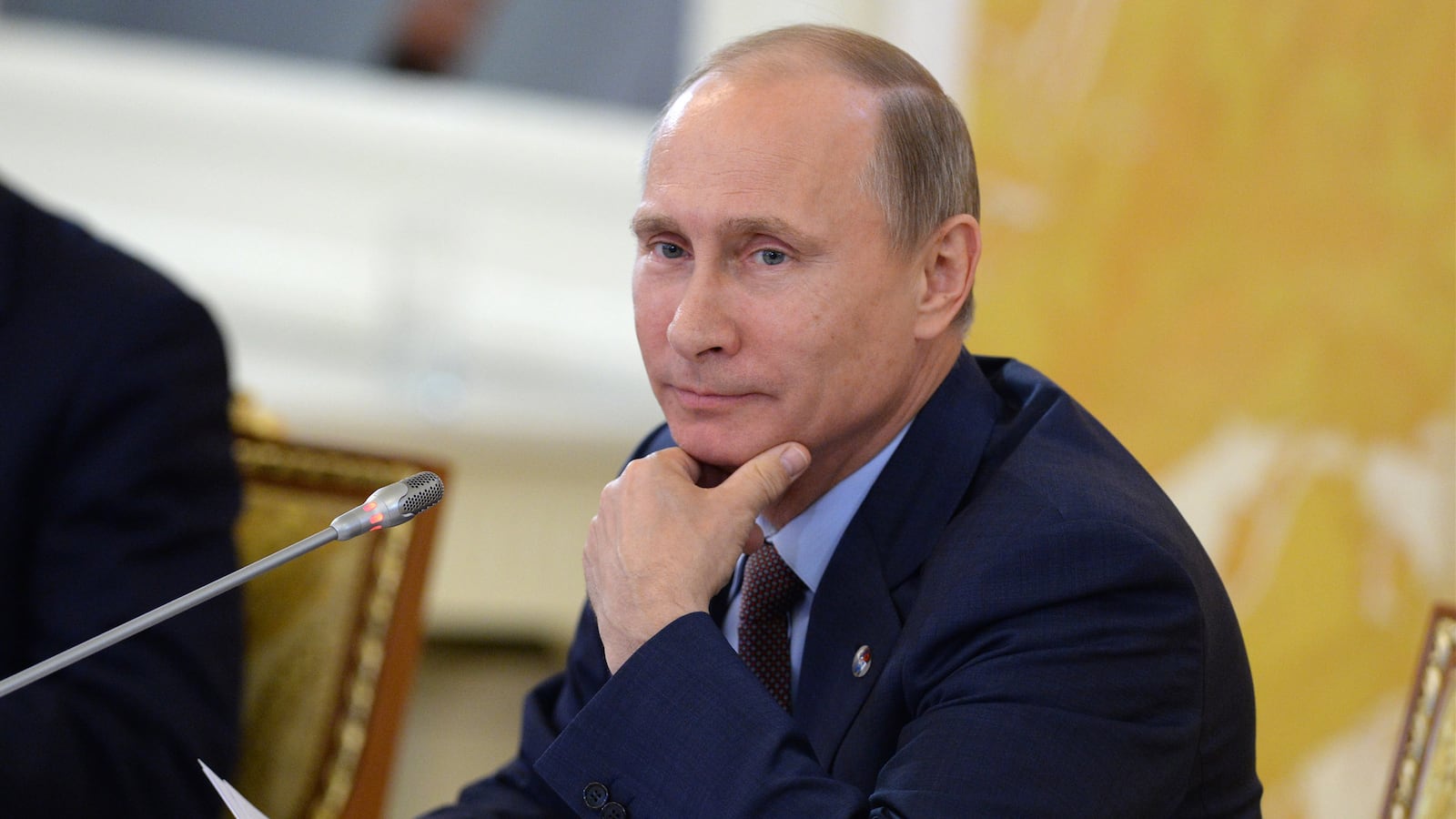Russian President Vladimir Putin is responsible for more deaths in Syria than any chemical weapons attack—and his New York Times op-ed was a mix of hypocrisy and convenient ignorance, the chairman of the House Armed Services Committee wrote Tuesday in the Moscow Times, a free English-language paper published in Russia’s capital.

Rep. Buck McKeon (R-CA) has become the first senior U.S. official to respond in the Russian media to Putin’s New York Times op-ed warning against U.S. intervention in Syria. The 11-term congressman from suburban Los Angeles accuses Putin of glossing over Russia’s role in the death of over 100,000 Syrians since the civil war began, points out that Putin stymied U.N. action for over two years before embracing the institution, and argues that Russia has a poor record on human rights and the treatment of its own citizens.
“The Americans who read Putin's op-ed are not dupes,” McKeon wrote. “They are aware of the suppression of the Russian people, the intimidation of journalists and the wanton disregard for basic human rights. In addition, they are able to identify irony when they see it — particularly when it is Putin who is making a spontaneous appeal for humanitarianism and the observance of rule of law.”
Putin argued in the New York Times that the U.N. Security Council must approve any use of force, but, as McKeon pointed out, Russia didn’t seek such permission before invading Georgia in 2008. In addition, the congressman attacked the Russian president for ignoring the impact of his country’s occupation of Chechnya when arguing about the dire humanitarian consequences of intervention.
McKeon found Putin's newfound concern for the safety of the Syrian population to be counter to Russia's actions related to the Syria crisis. “Putin wryly characterizes his opposition to Western involvement in Syria as a benevolent appeal of empathy for the innocents and respect for international law. Putin has warned that the violence in Syria would be worsened by U.S. intervention,” McKeon wrote. “He humbly omitted Russia's role in that affair: in the millions of tons of equipment, ammunition and arms that he has sent to the regime of Syrian President Bashar Assad. These weapons have killed far more Syrians than chemical weapons. With more than 100,000 Syrian civilians killed, the blood of scores of innocents is on Putin's hands.”
Moreover, he argues that Putin’s motivation is not to prevent a catastrophe in Syria but instead to thwart U.S. power and influence, as well as to preserve Russia’s access to its naval base in Syria, which is the country’s only military installation in the region.
McKeon also expressed his skepticism about Putin’s newfound belief in international institutions. “My suspicion is that Putin's sudden inspired confidence in the U.N. isn't so much warmhearted goodwill as it is a place where he has a veto over Western strategic interests,” he wrote. “Putin miscalculated when he tried to mask his self-interest with benevolence. He also miscalculated in achieving his second objective, using a surreal blend of hypocrisy and convenient ignorance of the facts.”
In publishing his op-ed, McKeon beat Sen. John McCain (R-AZ) to be the first American official to respond to Putin in the Russian media. McCain told CNN’s Jake Tapper on September 12 that he wanted to write a response to Putin on the Russian news site Pravda.
Sen. Lindsey Graham (R-SC) said Tuesday that he also wants to respond to Putin and will send him a letter Wednesday responding to the Times op-ed. “I don’t trust Putin, who is now the arbitrator of disarming Assad, to be fair-minded. He doesn’t even think Assad did anything wrong,” Graham said. “I’m going to write him a letter tomorrow asking him, ‘Do you now still believe the rebels gassed their own children?’”






